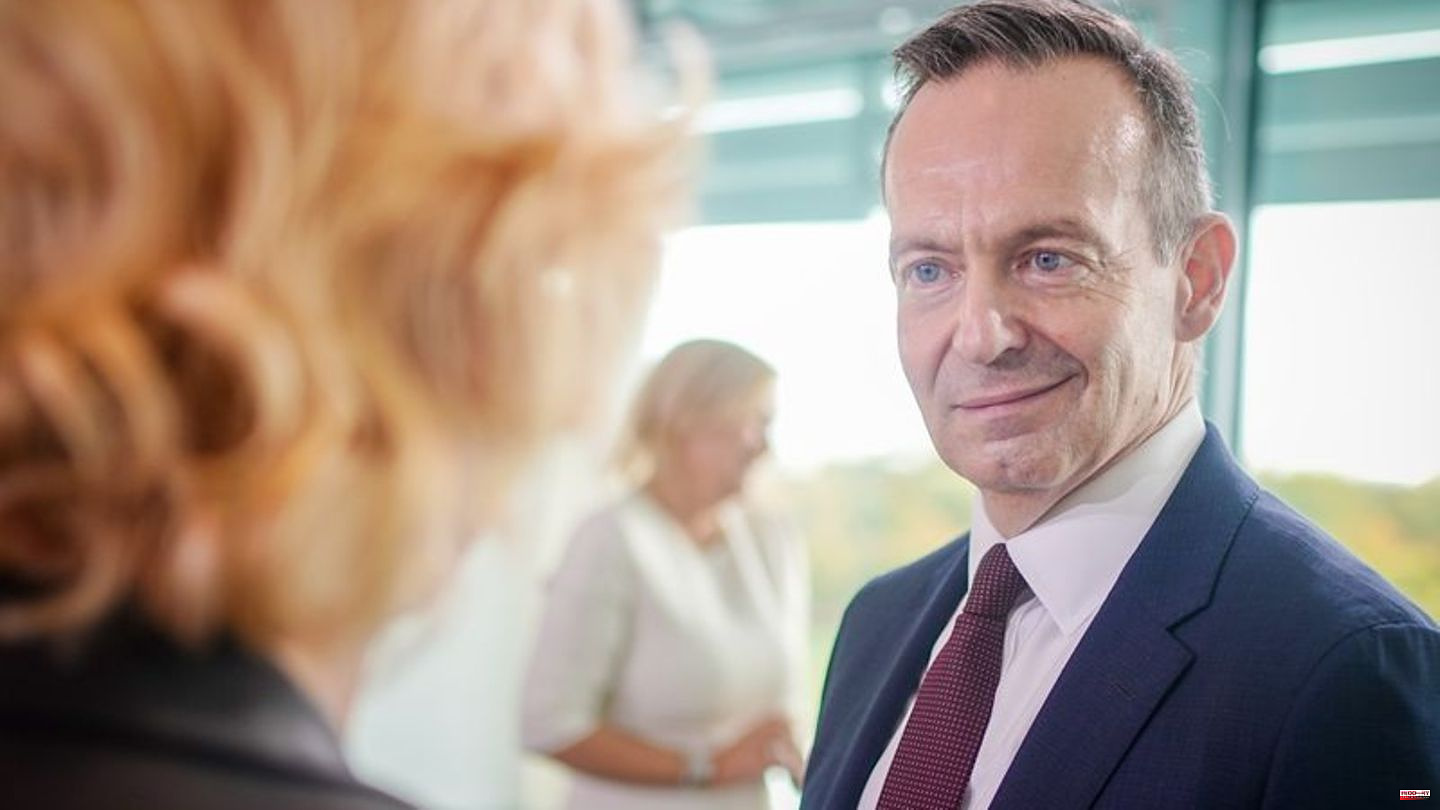A nationwide network - and charging electric cars should be easy, quick and convenient: these are the goals of the federal government. "Electric mobility will only be accepted if charging is as easy as filling up today," said Federal Transport Minister Volker Wissing on Wednesday. Any negative experience with electric mobility makes it difficult to switch to climate-friendly drives. The FDP politician wants to speed up the expansion of the charging network. "We have no time to lose."
The cabinet decided on a "master plan for charging infrastructure". For the expected ramp-up of e-mobility, charging stations need to be set up in advance, said Wissing. Gaps would have to be avoided, especially in rural areas. Municipalities in particular have a key role to play here. Reinhard Zirpel, President of the Association of International Motor Vehicle Manufacturers, said: "The charging infrastructure must not become a bottleneck for the success of electromobility."
The goal: one million publicly accessible charging points
6.3 billion euros are earmarked for the implementation of the plan. The federal government's goal is one million publicly accessible charging points in Germany by 2030. According to figures from the Federal Network Agency, there are currently around 70,000, including around 11,000 fast charging points. The federal government aims to have at least 15 million fully electric cars by 2030. 1.6 million electric cars are currently registered - with a strong upward trend.
CO2 emissions from transport have hardly fallen in recent years. Wissing spoke of a need to catch up. E-cars should play a key role in achieving climate targets.
The plan provides for 68 measures. In this way, the municipalities should be more involved. The development of charging points in residential areas, at gas stations and at companies should be promoted. More space is to be made available, especially at transport hubs such as train stations or parks
High electricity prices as a challenge
The minister described integration into the power grid as the most difficult task, which is to be expanded in good time. So far, the share of electric cars in electricity consumption has been 0.5 percent - in 2030 it will be 8 percent with 15 million electric cars.
However, electricity prices have risen. "If they stay that high in the long term, the corresponding effects on the recently pleasing numbers when electromobility is ramped up are inevitable," said the head of the Association of the Automotive Industry, Hildegard Müller, the editorial network Germany. The electricity tax must be reduced to the European minimum as soon as possible.
Wissing said the federal government is keeping an eye on electricity prices, but fuel prices have also risen. In addition to a gas price brake, the government is also working on an electricity price brake.
The car expert Ferdinand Dudenhöffer told the German Press Agency that he expects a "renaissance of the combustion engine" in the coming year. Among other things, he cited the price of electricity and planned cuts in state purchase premiums as reasons.
criticism and demands
ADAC Transport President Gerhard Hillebrand said that the framework conditions for the ramp-up of e-mobility had deteriorated considerably. Not only progress in the charging infrastructure is necessary, but also measures that take into account the uncertainties in subsidies, electricity prices and availability of vehicles. It is also important to make further advances in user-friendliness. This applies above all with a view to the transparency of prices at the charging station and payment options.
Kerstin Andreae, head of the energy industry association BDEW, criticized that the master plan missed the opportunity to specifically remove the stumbling blocks that had made it difficult for the public sector to expand charging stations more quickly for far too long. For example, more speed is needed for approvals and significantly less bureaucracy for funding programs.
Meanwhile, a majority of MEPs voted in favor of installing a charging station every 60 kilometers on major roads by 2026. The infrastructure for alternatives to combustion engines urgently needs to be expanded in order to save the EU climate goals, said the responsible rapporteur Ismail Ertug. In the next step, Parliament and EU states must negotiate the final text of the law.







